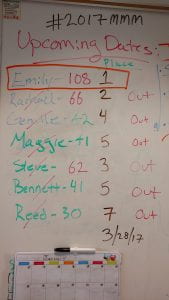The Latch Lab at the University of Wisconsin-Milwaukee is recruiting a Postdoctoral Fellow in population genetics, to work at the intersection of captive population management and wildlife conservation. The fellow will design and conduct computational research focused on pedigree-based management. The fellow will have considerable flexibility in the selection of specific projects, and successful candidates are encouraged to be creative in developing their own projects that utilize simulations or modeling approaches related to resolving incomplete pedigrees and utilizing pedigrees in wildlife conservation and management. The work will have important implications for the conservation and management of wildlife both in situ and ex situ, and I anticipate that the fellow could make meaningful contributions to either or both of these fields.
A PhD in molecular ecology, population genetics, computational biology or related discipline is required. Applicants should have a strong publication record, demonstrable experience in molecular data analysis and computer modeling (C++ or C# preferred), and competency with at least one scripting language (e.g., Perl, Python, R). The position is funded for up to three years, has a salary of $47,476, and may begin as early as February 2018.
To apply, please submit a brief cover letter, a one-page description of your research experience/interests, and a CV with the names and contact information for three references to Emily Latch (latch@uwm.edu). Please see https://sites.uwm.edu/latch/ to learn more about our group and send any questions or informal inquiries regarding the position to latch@uwm.edu. UW-Milwaukee is an equal opportunity/equal access/affirmative action employer fully committed to achieving a diverse workforce. Applicants from groups traditionally underrepresented in science are especially encouraged to apply.




